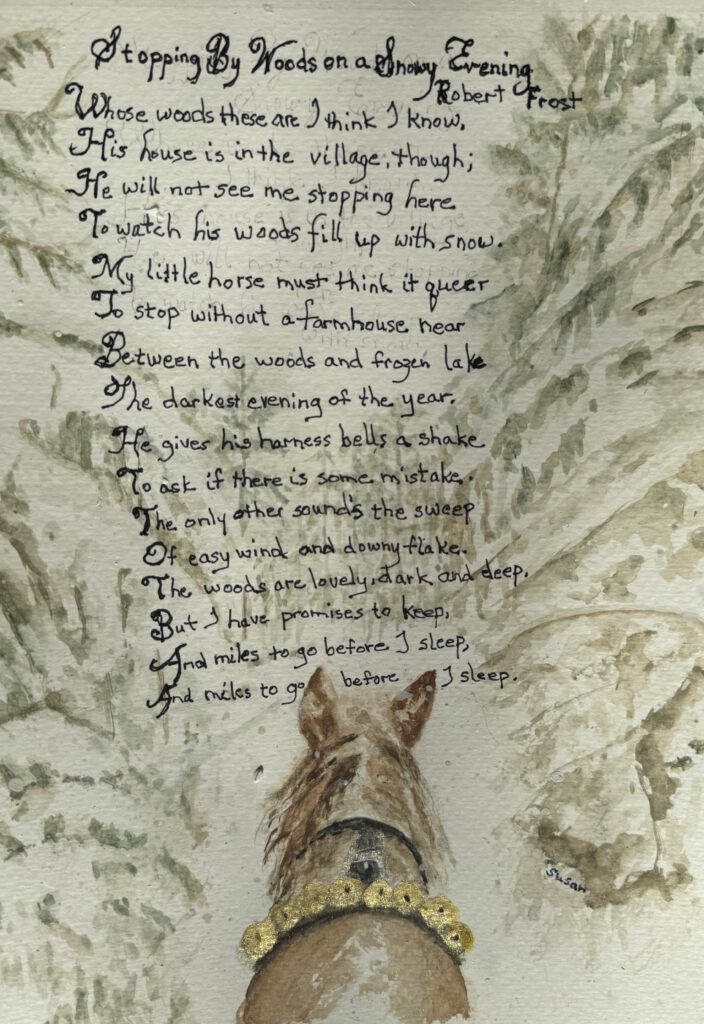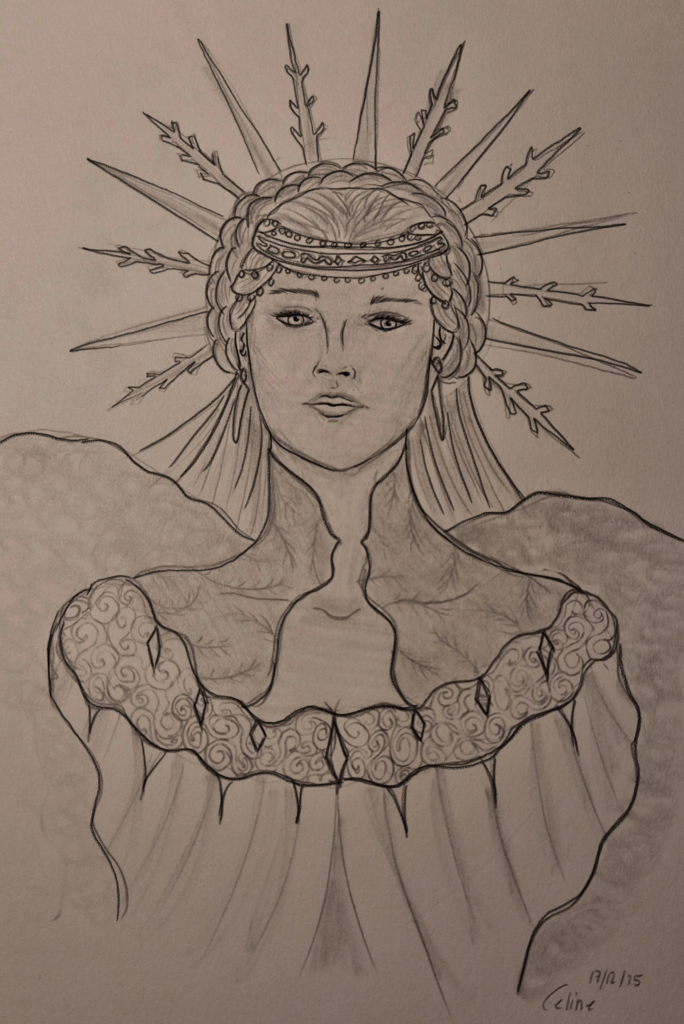Making Friends of Stage and Page: A Response to Alan Rosen
Judith Rosenheim
Published in Connotations Vol. 9.3 (1999/2000)
In his "Impertinent Matters: Lancelot Gobbo and the Fortunes of Performance Criticism," Alan Rosen addresses the continuing interest that Launcelot, the clown in Shakespeare's Merchant of Venice, generates in his apparent remoteness from the main action of this play. Rosen is interested in how Launcelot's marginal status as clown makes him a prime subject for critics wishing to isolate a purely theatrical dimension in drama, a dimension, moreover, that they see as challenging the play's definition as a text. C. L. Barber and Robert Weimann had seen the clown as invested with the inversionary energies of popular festival and thus as licensed to challenge authority. Taking their cue from Barber and Weimann, these critics see Launcelot as bringing his inversionary energies into the play in a manner that challenges its textual authority. It is their interest in this challenge that prompts performance critics to accord Launcelot a new importance, effectively moving him from the margin of the play to its center. And focusing on three such critics, Walter Cohen, David Wiles, and James Bulman, Rosen sees them as identifying three not altogether incongruent ways in which Launcelot compromises the play's textuality: by undermining its aristocratic discourse; by breaching its formal integrity; and by flouting its restraint upon his improvisational freedom.
Rosen's purpose in adducing the compromising functions thus ascribed to Launcelot is to impugn the arguments supporting them. Rosen sees Cohen as claiming that "Lancelot's erratic language actually and purposefully demystifies the play's dominant aristocratic discourse" (Rosen [→page 258] 220). Rosen answers that Cohen bases this claim upon a close reading of the text, which, as a conservative critical method, endows the text with just the authority and stability that Launcelot is purportedly undermining (220−21). Rosen sees Wiles to suggest that Launcelot's identity as clown gives him a lecherous bent that he expresses not in the play but rather in the bawdy jig that he performs after its conclusion (Rosen 222−23). Thus for Wiles, Launcelot not only widens our critical focus from "the unity of the text" to "the unity of theatrical experience," but also shows this wider unity to incorporate an amoral sexuality that challenges the play's romantic idealism (Wiles 56). Rosen answers that Wiles contradicts his description of Launcelot as lecherous by seeing the deferral of his sexual gratification to a point beyond the play as making him a Lenten figure within it (223). Rosen sees Bulman to further enhance the destabilizing power of Launcelot by observing that, as clown, he would have evinced a heightened capacity for improvisation, which enabled him "to move in and out of character" and thus to function "outside of and unconstrained by the text or even the play" (Rosen 225). Rosen answers that Bulman's approach, while not inconsistent, impoverishes the play by severing its theatrical understanding of Launcelot from meanings contained in the text (225).
Though Rosen thus rejects the shared impulse of these critics to oppose the play's theatricality to its textuality, he too suspects that theatrical and textual considerations are not invariably congruent. And like the critics he censures, Rosen too focuses his attention on Launcelot, and specifically on a consideration of how Launcelot's "table" (2.2.158)1) (the palm of his hand) instances an opposition of performance to text. For Launcelot views his palm as a text in which he reads the promise that unhindered sexual freedom will flow from his entrance into Bassanio's employ:
Go to, here's a simple line of life. Here's a small
trifle of wives! Alas, fifteen wives is nothing!
Eleven widows and nine maids is a simple coming−in
for one man. (2.2.160−63)
[→page 259] Yet Rosen also observes that Launcelot cannot perform his text, as Lorenzo intimates (3.5.38−39) in censuring the clown for a single transgressive conquest that will probably be punished. And the unperformability of Launcelot's text is seen by Rosen to cast doubt upon "the notion of a text−driven drama" (227).
Rosen's own wish, however, is to see "the revisionary practices" of performance critics coexisting with the ability of texts to "infiltrate, if not prescribe performance" (228). And so, while he finds Launcelot to adduce evidence of disharmony between text and performance, he also finds Launcelot to provide evidence of an alternative cooperation between these dramatic elements. Rosen observes that Launcelot's "table" or palm is not just a text but an embodied text. But Launcelot also refers to his "table" as an embodied text, "which doth offer to swear upon a book" (2.2.158−59), the book in question being the Bible as an unembodied text. By seeing hand and Bible to constitute two kinds of texts, one embodied, the other unembodied, Rosen makes these terms equivalent to "actor and script, theatre and text" (227). But in putting his hand on the Bible, Launcelot is also joining these two kinds of texts, and Rosen sees this joining to suggest that these texts are meant to be read together. Thus Rosen finds Launcelot to introduce a "striking image of creative interdependence" between the realms of performance and text (227). I find his observation interesting and highly suggestive. For in his offhand juxtaposition of an embodied text to an unembodied text that is specifically biblical, Launcelot appears to adumbrate what I am about to find Shakespeare doing more extensively: which is to introduce a specifically biblical textuality into this play that he integrates with meanings specifically theatrical. I shall adduce further evidence to reinforce Rosen's expectation that a closely considered textuality can cooperate with an historical awareness of performance meanings; that this cooperation enhances the clarity of both these meanings and by so doing, enables them to illuminate larger issues in the play.
I locate these meanings in the 2.2 dialogue between Launcelot and his father, Old Gobbo, a dialogue whose textual complexity I have elsewhere investigated.2) But this dialogue clearly offers striking performance meanings as well, meanings so apparent that it becomes appropriate to [→page 260] begin by addressing them. And doing this causes me to notice that this extended dialogue has been very lightly treated, if not ignored, by all three of the performance critics who focus on Launcelot, as well as by Rosen himself. Why they have scanted this dialogue seems to emerge in the recognition that, while inscribing many of the potentially extratextual signs that pertain to performance, it also seems to strike at the basis of performance criticism by evincing a tone that invites description as failed festivity. This dialogue exhibits Launcelot fooling with Old Gobbo, who is his father. As a father, Old Gobbo assumes an authority that would ordinarily make him an appropriate target for the inversionary energies that Launcelot evinces as clown. Yet this father is marked by the conspicuous vulnerabilities of age and blindness, which cast doubt on the appropriateness of attacking him. Thus when, with Vice−like glee, Launcelot invites the audience to watch him goad his blind father to tears with the report of his own death, his mirth comes across as dubious if not cruel: "Mark me now, now will I raise the waters" (2.2.49). Even if Launcelot's festive identity as clown prepares the audience to laugh at his fooling, it is a laughter that would likely have been uneasy and abortive. No doubt this remains a guess; one cannot be certain of such a claim. At the same time, we should notice that Launcelot soon comes to suspend his mirth: "Pray you let's have no more fooling about it, but give me your blessing" (2.2.83−84). These words may register Shakespeare's expectation that the audience will recoil from Launcelot's fooling, or even that Launcelot himself recoils from this fooling. Thus while Launcelot's cruel mirth shows him expressing the clown's rebellious festivity, it is a festivity that Shakespeare may well be inviting us to question and even blame. Intending to make us laugh at his old father, Launcelot causes us to pity him, thereby invoking his festive transgressiveness only to overthrow it. With one turn of the screw, Shakespeare is causing a figure of festive subversion to subvert himself.
What Launcelot himself impugns we can hardly validate. Thus rather than valorizing him as a critic, we might observe that he registers a change in the traditional function of the clown, that the purpose of this change remains undisclosed, and that it may nonetheless be important in [→page 261] illuminating his function in the play. It thus behooves us to discover what this change imports, and doing this directs us toward the text. The text may supply the terms that enable Launcelot's atypical self−subversion to make sense. And indeed, these terms appear to be anticipated in evidence adduced by Dorothy Hockey (448) and René Fortin (265−66) to the effect that Launcelot's father, Old Gobbo, invokes a biblical text by alluding to blind Isaac in Genesis 27.
As Hockey convincingly shows, Old Gobbo typifies the Old Testament figure of blind Isaac, thus introducing the realm of biblical typology into the play. And in being shown to engage the realm of biblical typology, this play emerges as doubly textual in constituting a text that refers to yet another text, indeed, to a text whose very name means "book." But if the play thus assumes a textual complexity in introducing the Old Testament figure of blind Isaac, it also contains numerous references to the New Testament figure of the Prodigal Son in Luke 15. And while, as son to Old Gobbo's Isaac in Genesis 27, Launcelot ought to assume the role of Jacob, and to some extent does assume this role, a consideration of Launcelot's behaviour when we meet him in 2.2 shows four ways in which he also and more prominently invokes the Prodigal. As the Prodigal rebels against his father by running away from him, we meet Launcelot in the rebellious act of running away from his master, Shylock. As the Prodigal solicits his father for money, Launcelot solicits his father for a "blessing" that the play elsewhere expresses as money. As the Prodigal's rebellious flight torments his father in causing him to think that his son is dead, Launcelot casually torments his father with the false report of his own death: "Talk not of Master Launcelot, father, for the young gentleman … is indeed deceas'd, or as you would say in plain terms, gone to heaven" (2.2.60−65). And as the Prodigal flees in anticipation of a profligate life that disappoints him, Launcelot flees Shylock's employ in a similar hope that is similarly disappointed. These correspondences broach the possibility that just as Old Gobbo clearly typifies blind Isaac, Launcelot typifies the Prodigal Son.
It now becomes appropriate to observe that Launcelot as Prodigal Son bears some resemblance to Launcelot as clown. If Launcelot as Prodigal is his father's social inferior, Launcelot as clown is the social inferior of [→page 262] his master, Shylock. If Launcelot as Prodigal rebels against his father, Launcelot as clown defects from Shylock. What we have here, then, are two meanings that pertain to Launcelot, one textual and one theatrical. These meanings are similar in that both put Launcelot in a negative light. Yet the first is less obvious than the second. And their disparity in this respect emerges with special force in the observation that Launcelot becomes cruel in clowning at his father's expense. For in so doing he seems to educe a more subtly dubious meaning in prodigality that Launcelot does not otherwise express but which, as we shall shortly see, is important to the play's wider meaning. Not only rebelling against his father, the Prodigal also solicits him for money that he then uses to facilitate his revolt, thus using his patrimony to revolt against the very father who gave it. In clowning at his father's expense, Launcelot invokes the Prodigal's literal rebellion at his father's expense. By thus having Launcelot's clowning adumbrate his prodigality, Shakespeare appears to be using the overtness of his theatrical meaning to gesture toward his more obscure and highly freighted textuality, yet with sufficient subtlety to hide that textual meaning from the notice of the censors.3) Launcelot's theatricality enables Shakespeare to say something about his textuality without quite saying it. But if Launcelot's theatricality gestures toward his textuality, that textuality also clarifies the uncomic and disturbing character of his theatricality by disclosing its true purpose, which is not only to reinforce his prodigality but also to emphasize its moral dubiety. It thus emerges that Launcelot's theatrical and textual meanings collaborate so as to clarify them both. And these collaborative meanings extend, as I think, beyond Launcelot.
For as types of blind Isaac and the Prodigal son, Old Gobbo and Launcelot invoke figures that derive from the Old and New Testaments and thus may advert to the religious quarrel that this play depicts between a Jew and a Christian as respective advocates of these scriptures. Thus it becomes likely that the typological affiliations investing the play's marginal characters are ultimately directed to these central characters. Indeed, Dorothy Hockey has aptly suggested that Old Gobbo's invocation of Isaac reflects on Shylock (449), even if the reflection appears to be more serious [→page 263] than she thinks. For Old Gobbo is like Isaac in two ways that invoke certain theological meanings reposed in Shylock's Jewishness. As his name suggests, Old Gobbo is like Isaac in being old. But Shylock too is old, as he invites us to notice in referring to himself as "Old Shylock" (2.5.2). And Shylock's oldness may pertain to his Jewishness in its comparable derogation as the outworn Old Covenant that is superseded by the New. Old Gobbo also invokes Isaac in his blindness, a blindness that likewise has a theological resonance. For in accordance with the adversos Judaeos tradition of Christian exegesis, Calvin refers Isaac's blindness to Judaism itself (2: 50), thus characterizing the old faith as symbolically blind to the spiritual truth of the new. And as a symbol of blind Judaism, Isaac can characterize the Judaism of Shylock as comparably blind. Yet Shakespeare also introduces a complication into the age and blindness of the Isaac typified by Old Gobbo. For Old Gobbo is also like Isaac in being a father, and Shylock too is a father. If, then, Shylock's age and blindness can refer to his Jewishness, his paternity may likewise refer to his Jewishness, which he now expresses as an old, blind father. Yet to characterize blindness as paternal is implicitly to direct that blindness toward an unknown son: Isaac's blindness makes him unable to recognize his son, and Old Gobbo's blindness likewise prevents him from recognizing Launcelot as his son. Is Shylock also blind to a son? This is what Launcelot seems to suggest in telling his old father, "Nay, indeed if you had your eyes you might fail of the knowing me; it is a wise father that knows his own child" (2.2.75−77). For Launcelot here defines blindness as a psychological defect that may well apply to Shylock as a father whose psychological blindness or unwisdom prevents him from knowing his own child. And hazarding a collective identification of this unrecognized son, Fortin defines him as the Christians (267). The Isaac in Old Gobbo is thus said to define the Jewish Shylock as psychologically blind to the paternal nature of his relationship to the Christians.
Yet if Shakespeare thus connects Shylock to Isaac through Old Gobbo, he also makes this connection in a manner that, if just as subtle, is more direct. For in 1.3, Shakespeare has Shylock reflect on Jacob as "The third possessor" of what can only be Abraham's blessing. And this reflection [→page 264] includes a parenthetical reference to Genesis 27, the biblical story that tells how Jacob acquired this blessing from his blind father, Isaac:
This Jacob from our holy Abram was
(As his wise mother wrought in his behalf)
The third possessor; ay, he was the third—(1.3.72−74)
Shylock here invokes the same father Isaac that Old Gobbo typifies. And in so doing, Shylock subtly reinforces the appropriateness of seeing him as the ultimate referent of Old Gobbo's Isaac. Yet just as Launcelot invokes the Prodigal in a manner that preserves his obscurity, Shylock obscures his own invocation of Isaac. For even as Shylock names Jacob as the third possessor and Abram as the first, he omits to name Isaac as the second. And the reason for this omission may well emerge from a consideration of how far the paternity of Isaac that Shakespeare imparts to Shylock's Jewishness diverges from the view of Judaism regnant in the Renaissance, and how far this paternity, like Launcelot's prodigality, had to be hidden from the recognition of the censors. Shakespeare might candidly make Isaac express the age and blindness of Shylock's Judaism; he might not so candidly use Isaac to characterize Shylock's relation to the play's Christians as paternal.
Once granting, moreover, that Shakespeare characterizes Shylock's Jewishness as paternal, we are prompted to ask if the play directs his unknowing paternity not merely to the Christians but to one Christian in particular. For if there is reason to think that the Isaac in Old Gobbo refers specifically to Shylock, there is also reason to believe that Launcelot's prodigality may have a comparably specific referent, a referent who, in contrast to Shylock's Jewish paternity emerges as a Christian son. And if we proceed to ask who this son might be, one character falls under immediate suspicion. For if Shylock is this play's exponent of Judaism, Antonio is its exponent of Christianity. And once suspecting Antonio, we become aware of how the prodigality invoked by Launcelot is also exhibited in him. Like the Prodigal, whose rebellion harbors the connotation of insult, Antonio insults Shylock. Like the Prodigal, who demands his father's money, Antonio peremptorily demands to borrow Shylock's [→page 265] money. Like the Prodigal who uses his father's money to rebel against his father, Antonio uses the money he borrows from Shylock to insult him with his own superior generosity toward Bassanio in the eschewing of usury. And like the Prodigal, who squanders his patrimony and beggars himself, Antonio loses the money he borrows from Shylock and beggars himself. Indeed, Shylock identifies the self−beggared Antonio as the Prodigal even while comparing him to his own prodigal daughter: "There I have another bad match. A bankrout, a prodigal, who dare scarce show his head on the Rialto; a beggar …" (3.1.44−46). It thus seems reasonable to propose that if Old Gobbo typifies blind Isaac in order to project that identity onto Shylock, Launcelot typifies the Prodigal Son in order to project that identity onto Antonio, the Jewish Shylock and the Christian Antonio emerging as blind father and Prodigal Son. And if Shakespeare invokes the adversos Judaeos tradition to apply Isaac's blindness to Shylock's Judaism in its relation to the Christians, Shakespeare may well be using this same method of textual self−invalidation to apply Antonio's prodigality to Christianity in its relation to the Jews. For in evoking the Prodigal's use of his father's resources to insult him, Antonio recapitulates the Christian tendency not only to appropriate the Jewish scriptures but also to mine these scriptures for texts purporting to show Judaism as abrogating itself. It thus emerges that Shakespeare invokes this exegetical method in two ways: by adducing an Old Testament text against the Jews and by adducing a New Testament text against the Christians, his likely purpose in these invocations being to censure the play's principal Jew and Christian for defects that thwart the true relation of their faiths as father and son.
If it is to Antonio that Launcelot's prodigality ultimately refers, it is to Antonio that Launcelot's atypicality as self−subverting clown may likewise refer. For Launcelot's cruel clowning with his father resonates suspiciously with the fleering contempt that Antonio earlier demonstrates toward Shylock. And if Launcelot's clowning enhances the negativity of his identity as Prodigal, its resonance in Antonio may enhance the negativity of Antonio's prodigality as well. It thus becomes plausible to suggest that by causing Launcelot's clowning to indict him as the Prodigal, Shakespeare makes Launcelot a vehicle for his own identical indictment of Antonio. [→page 266] And in facilitating the moral definition of Antonio, Launcelot serves the larger meaning of this play. As above suggested, Launcelot does this through the cooperative interaction of his theatrical and textual meanings. It is as a theatrical meaning that Launcelot's clowning informs his prodigality. And it is as a textual meaning that Launcelot's prodigality explains why his clowning undermines itself. Yet it should also be noticed that the parity of these mutual influences is not absolute. For in Launcelot, Shakespeare distorts the traditional derisiveness of the clown by having that derisiveness recoil against him; by contrast, his prodigality is represented in a manner that is true to its textual source. It thus appears that Shakespeare bends the traditional meaning of Launcelot's theatricality into the service of his more importantly textual meaning. In drawing upon a dramatic tradition in order to flout it, Shakespeare allows us to suspect that its general signs assume value in their adjustment to the particularities of his text. Yet even if ancillary in one way, Launcelot's clowning displays the ability of its expressive theatricality to draw our attention beyond the borders of the play to its author. For in pointing to his identity as the Prodigal, Launcelot's theatrical clowning enables us to consider that this biblical figure, as also the Isaac in Old Gobbo, were intentionally chosen by Shakespeare. Indeed, it is hard for me to see them in any other way. And as intended by Shakespeare, these meanings cannot but reflect upon the innovative and independent power of his mind to transcend the limitations of his culture. Rather than regarding the poet as a passive conduit of dramatic and cultural traditions that dictate what his comedy could say, we come to see him as molding these traditions into the vehicles of his own thought.
The foregoing summary of the 2.2. dialogue barely begins to unpack its densely compressed meanings. It does no more than glance at the proposition that this dialogue tends, by conflating two biblical stories about fathers and sons, to give both Shylock and Antonio not one typological meaning but two. It does not extend to the way in which this dialogue transforms Launcelot into a type of the returned Prodigal, or how this transformation enables him to insinuate an alternatively positive ending to the Shylock⁄Antonio quarrel, which Shakespeare does not allow his [→page 267] play to achieve. Nor does this rendering pause to consider extensive evidence suggesting that the theme of money in Merchant, and more specifically of usury, is not ultimately engaged in its literal and economic meaning, but rather symbolizes a spiritual wealth greater than itself that is Abraham's blessing. Incomplete as they are, however, the textual meanings here adduced are likely to comprise the kind of interpretation that Richard Levin censures as an ironic reading of the play (546). They do indeed change our view of both antagonists by making one of them better than he seems on the stage and one worse. And this change cannot but imbue the argument with a certain inconclusiveness. Even in combining with the overt theatricality of the clown, Launcelot's typological textuality, as the heart of his meaning, remains obscured. And while the obscurity of this meaning may reflect Shakespeare's need, as with Shylock's paternity, to evade recognition by the censors, that need, however plausible, cannot cancel an awareness that Launcelot's identity as Prodigal is founded on imaginative connections that remain oblique. In the end, this argument becomes effective only in the ability of its associations to resonate in the mind of the reader, at least so far as to prompt further thinking on the issues it raises.
Los Gatos
California
Works Cited
[268] Barber, C. L. Shakespeare’s Festive Comedies. 1959. Cleveland: Meridian, 1963.
Bulman, James C. Shakespeare in Performance: “The Merchant of Venice.” Manchester: Manchester UP, 1991.
Calvin, John. A Commentary on Genesis. 1554 Latin. 1578 English. Two volumes in one. Trans. and Ed. John King 1847. London: Calvin Translation Society, 1965.
Cohen, Walter. “The Merchant of Venice and the Possibilities of Historical Criticism.” English Literary History 49 (1982): 765−89.
Fortin, René. “Launcelot and the Uses of Allegory in The Merchant of Venice.” Studies in English Literature 14 (1974): 259−70.
Hockey, Dorothy C. “The Patch is Kind Enough.” Shakespeare Quarterly 10 (1959): 448−50.
Levin, Richard. “Performance−Critics vs. Close Readers in the Study of English Renaissance Drama.” Modern Language Review 81 (1986): 545−59.
Rosen, Alan. “Impertinent Matters: Lancelot Gobbo and the Fortunes of Performance Criticism.” Connotations 8.2 (1998⁄99): 217−31.
Weimann, Robert. Shakespeare and the Popular Tradition in the Theater. Ed. Robert Schwartz. Baltimore: Johns Hopkins UP, 1978.
Wiles, David. Shakespeare’s Clown. Cambridge: CUP, 1987.
































 Ring out, wild bells, to the wild sky,
Ring out, wild bells, to the wild sky,















